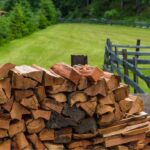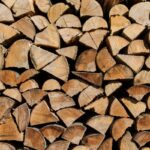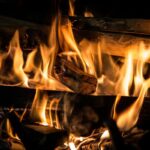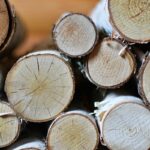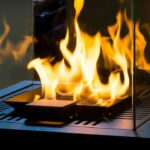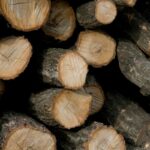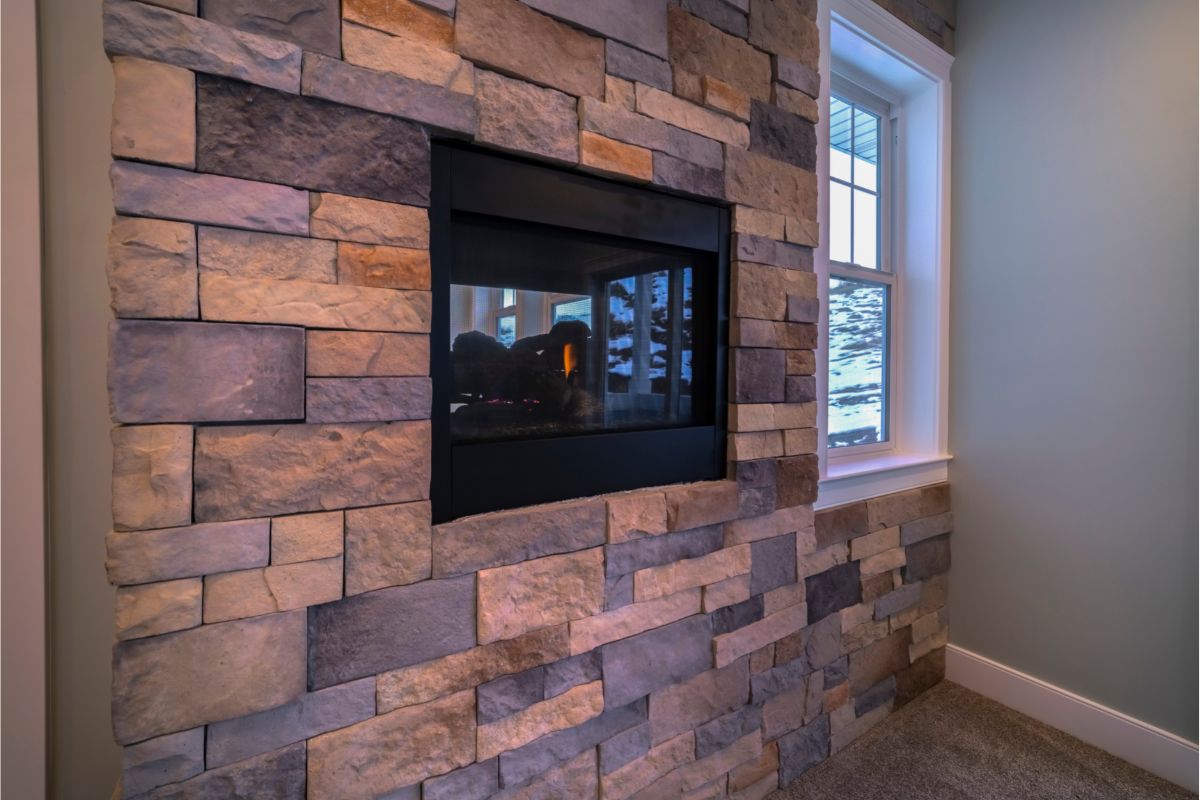For some people, a popping and crackling fire is part of the ambiance and experience of owning a fireplace. However, for others, the occurrence can be too much.
There are many reasons why your fire may pop and crack, although, one of the most common factors includes the type of wood you’re burning.
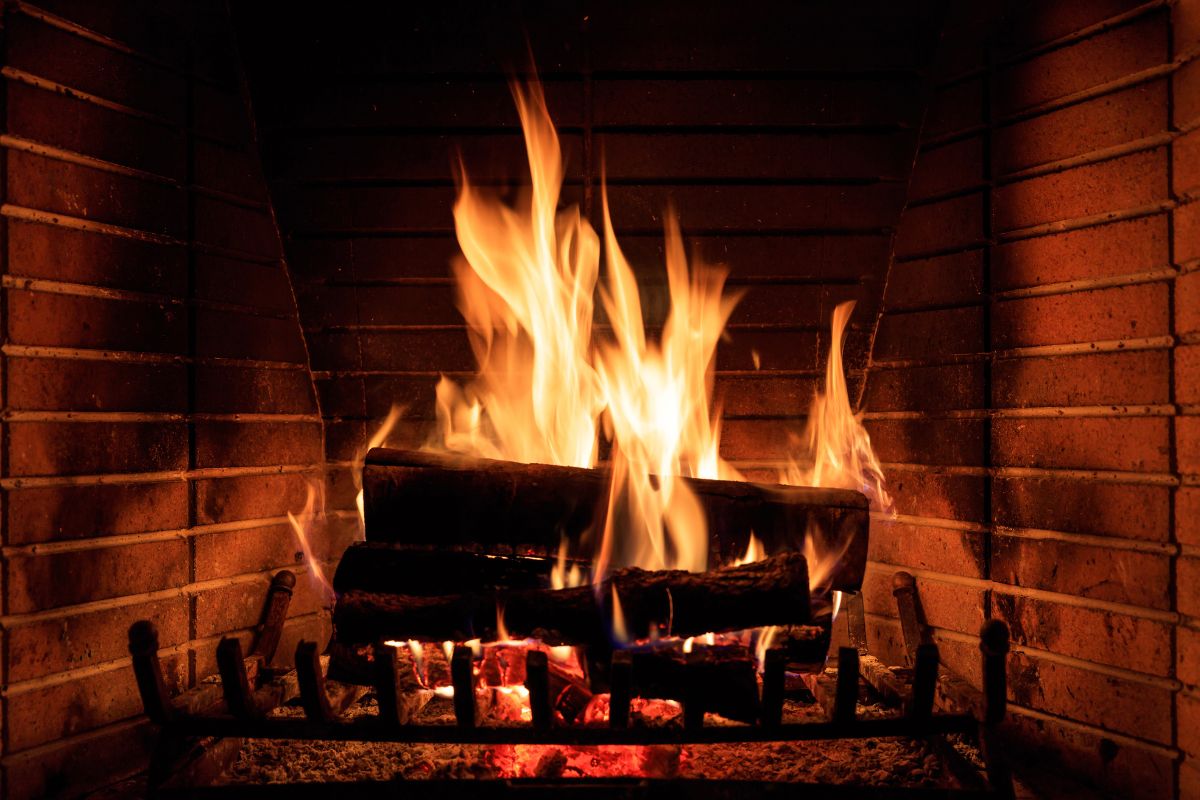
Essentially, the crackling and popping sound is the result of gasses escaping quickly from the burning firewood.
The amount of cracks and pops you hear from the fire can depend on the moisture content, the type of wood you’re using, and combustion efficiency.
With this in mind, to find out more about why your fire pops and crackles, we have created this complete guide detailing everything you need to know about popping firewood.
Let’s get started.
Why Is My Firewood Popping?
You may wonder why does firewood pop. The popping sound is caused by a chemical reaction that is increased by high temperatures.
This reaction uses fuel, in this instance, wood, as well as oxygen from the air to generate a heat-producing reaction.
This reaction releases energy (heat) by breaking bonds between molecules – transforming solid wood into gaseous smoke.
Steam and other types of gasses are formed between the cellulose layers as the wood begins to heat up.
Thus, once the fire reaches a specific temperature, the cellulose layers trapping the gas start to break down.
Once these layers break down enough, the gasses escape, and create that popping and crackling noise.
There is nothing strange about wood crackling or popping when burned. Although frequent popping could indicate that your wood isn’t dry enough.
Ensuring your wood is seasoned is important for a warm, long-lasting, and, most importantly, safe fire.
Factors Contributing To A Popping Fire
One of the most common questions people ask when sitting around a fire and enjoying the warmth is “Why does firewood pop?”.
Well, as previously mentioned, several different factors contribute to this.
In this section of the article, we will explore the answer to this question in further detail.
1. Green Wood
Green wood that has been freshly cut and not provided the time to dry properly will have a higher moisture content, making it more prone to popping.
This is due to the fact that more water requires more energy to evaporate, creating increased pressure buildup and frequent popping.
2. Moisture Content
The moisture content of your firewood plays a significant role in the popping sounds produced.
This is because when firewood is cut, it contains a high moisture level. As the fire heats the wood, the trapped moisture becomes steam, rapidly expanding and creating pressure.
This pressure will eventually cause the wood to split or crack, creating a popping sound that can sometimes cause sparks to fly.
Wood that has been seasoned properly is less likely to pop. Although, if it has not been dried thoroughly, even seasoned wood can pop.
3. Size And Shape Of The Wood
The size and shape of the wood can also play a role in the popping sounds. For instance, small pieces of wood tend to heat up and dry quickly, which leads to frequent popping.
Likewise, irregularly shaped wood can have more trapped moisture, making it more likely for pressure to build up and pop.
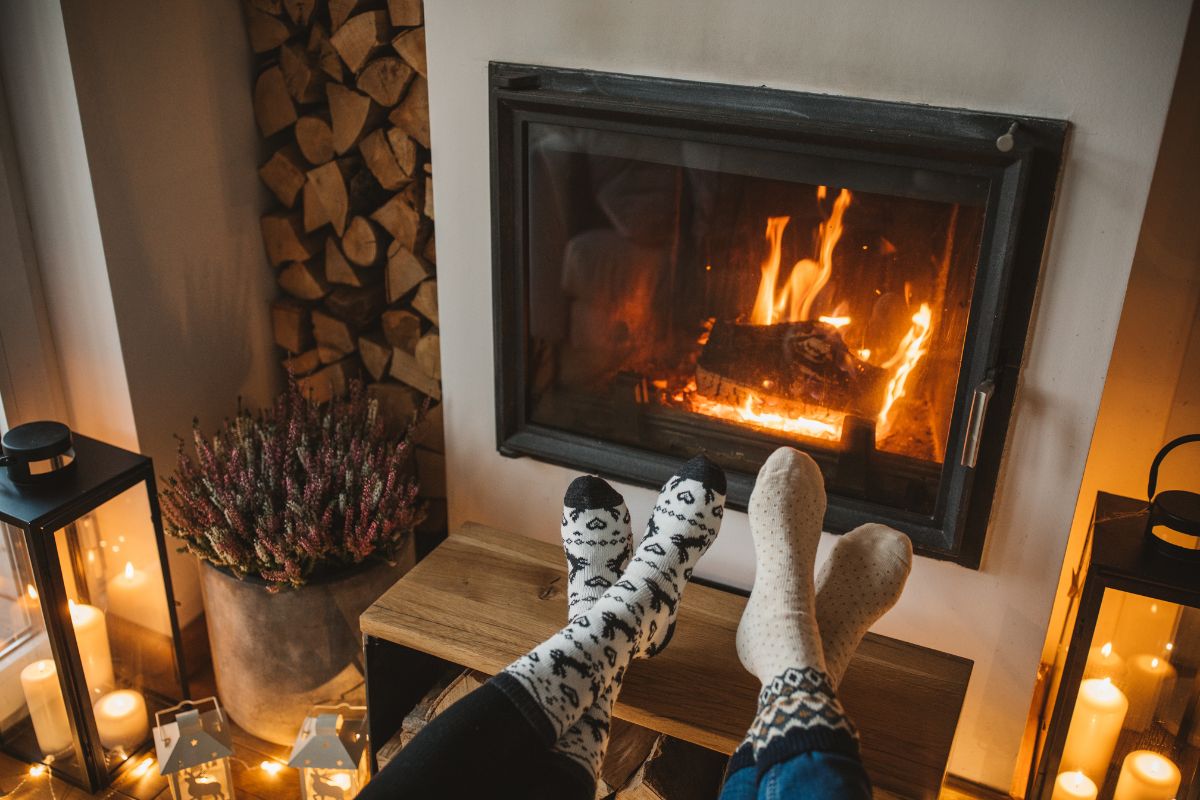
4. Pockets And Knots Of Resin
Another factor is knots or pockets found within your firewood. Knots are tightly packed and dense sections of wood where the branches were once connected to the tree.
These can create a barrier to the steam, increasing pressure and eventually causing the wood to pop.
Additionally, pockets of resin, which can be found in some species of tree, can also cause popping due to the resin heating and rapidly expanding.
Firewood That Pops The Most
Different types of wood are more likely to pop than others. This is usually the result of more water content.
Therefore, purchasing a moisture meter can be smart since it will inform you of exactly how much moisture is in your wood.
Wood with less moisture will not only create fewer pops but will also burn much easier. Likewise, open-grain wood is less likely to pop, too.
For instance, hickory, poplar, locust, ash, walnut, and even oak.
Firewood That Pops The Least
If you don’t enjoy the popping sound of wood, luckily, there are a few types of wood that pop less than others.
While there is still a chance of popping, you’ll want to stick with softwood. This includes soft maple and birches.
Otherwise, if you can’t find these types, you can use cherry, maple, yellow birch, or even black birch.
Any of these woods should help to reduce the amount of popping you hear when burning your firewood.
How To Stop Firewood From Popping?
To reduce the number of crackles and pops in your fire, you should opt to burn kiln-dried firewood that has a low moisture content.
Since kiln-dried wood typically contains a reduced amount of water, as opposed to seasoned firewood, it can lead to more infrequent crackling and popping noises in the fire.
Final Thoughts
Understanding why your firewood pops is important for anyone who likes to enjoy a fire. This is because it can help you choose the right firewood and reduce the chances of damage and injury from flying sparks.
Factors like green wood, moisture content, size and shape of the wood, and pockets of resin or knots in the wood contribute to the sound of popping on a roasting fire.
Hopefully, this guide has informed you on everything you need to know about why firewood pops.
- How To Open Chimney Flue - July 20, 2023
- Do Electric Fireplaces Use A Lot Of Electricity? - July 20, 2023
- How To Keep A Fire Going - July 20, 2023

